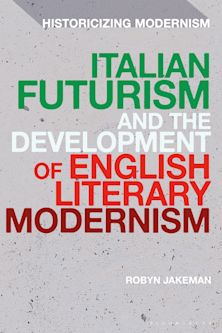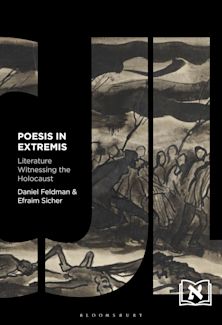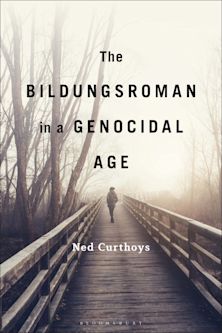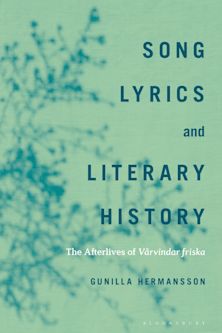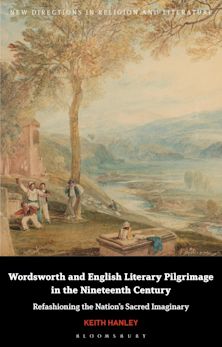- Home
- ACADEMIC
- Literary Studies
- Western European Literature
- Public Intellectuals and Nation Building in the Iberian Peninsula, 1900–1925
Public Intellectuals and Nation Building in the Iberian Peninsula, 1900–1925
The Alchemy of Identity
Public Intellectuals and Nation Building in the Iberian Peninsula, 1900–1925
The Alchemy of Identity
You must sign in to add this item to your wishlist. Please sign in or create an account
Description
This book provides a detailed analysis of the core concepts of national identity articulated by Iberian writers during the period between 1900 and 1925. It is centered on four "pedagogical" essays written in these decades previous to the onset of authoritarian dictatorships in Spain and Portugal, works that are absolutely central to understanding the discursive architecture of collective identity in these same places today. They are as follows: Enric Prat de la Riba's La Nacionalitat Catalana (1906), Teixeira de Pascoaes' Arte de Ser Português (1915),Vicente Risco's Teoría do Nacionalismo Galego (1920), and José Ortega y Gasset's España invertebrada (1921).
The study consists of a discussion of some of the more important theoretical issues connected to social articulation of cultural identities, four chapter-long analyses of the textual manifestations of national identity within the major Romance-language communities of the Iberian peninsula, and a conclusion which underscores the key function played by these public intellectuals in establishing the parameters of the “Imagined Communities” with which they felt primarily identified.
On the most basic level, the study of these “catechistic” visions of national individuality provides a heightened sense of both the differences and commonalities inherent in the cultural traditions of these core nationality groups of the Iberian Peninsula. On another level, the study reminds us of the important pedagogical function of literature (understood here in the broadest possible sense) in the formation and maintenance of nationality identities then, as well as now.
Table of Contents
Notes on Translations
Acknowledgments
Abbreviations
Prologue
One: Peoples, Pedagogies and the Reemergence of Iberian Pluralism
Two: Enric Prat de la Riba’s La nacionalitat catalana: Merging Tradition and Modernity to Create a New Basis for the Institutional Reconstruction of Catalonia
Three: A Manual of “Supra-Modern” Nationhood: Pascoaes’s Arte de Ser Português
Four: Building the Nation through Appropriation: Vicente Risco’s Teoría do Nacionalismo Galego
Five: The Castilian Counter-offensive: Ortega’s España invertebrada
Six: The Essential Role of Nationalist Catechists in the Elaboration of the Contemporary Iberian Discourses of Identity
Bibliography
Index
About the Author
Product details
| Published | Dec 11 2014 |
|---|---|
| Format | Ebook (Epub & Mobi) |
| Edition | 1st |
| Extent | 372 |
| ISBN | 9781611485622 |
| Imprint | Bucknell University Press |
| Series | Bucknell Studies in Latin American Literature and Theory |
| Publisher | Bloomsbury Publishing |
About the contributors
Reviews
-
Thomas Harrington's Public Intellectuals and Nation-Building in the Iberian Peninsula 1900-1925: The Alchemy of Identity, is a timely and important addition to current debates on nationhood and national identity in today's Spain and Portugal. Through a detailed historical treatment of the work of four preeminent nationalist "catechisms" of the early twentieth century, Harrington sheds much-needed light upon the architecture of competing discourses of national identity in today's Peninsula. Perhaps the book's greatest strength, however, is the way it allows us to observe the parallel and often surprisingly interconnected genesis of that region's supposedly radically distinct codes of collective belief.
Josep Maria Solé I Sabaté
-
Grounded on solid research and convincing theoretical approach, Harrington’s book is an unavoidable contribution to the growing field of Iberian Studies. It truly makes a difference that the author is versant in all the languages and cultures under discussion and attains a truly comparative perspective. Harrington analyzes the historical and ideological background of current debates, thus the tropes of cultural identity first generated between 1874 and 1923, a period when the Iberian Problem of the Nation was far more intricate and complex than presented by most canonical treatments of the matter with a fixation on literary generations based in Madrid. Compelling readings of major texts by Enric Prat de la Riba, Pascoaes, Risco and Ortega y Gasset Nationalism demonstrate that three of the four concepts of nationhood studied are strongly linked to the nineteenth-century Romantic reaction to the modern notion of progress, a fourth one connected to the need of an elite leadership class, inspiring myths, and the desire for transcendence through group identification and for an imperial project. The book provides, among other things, a roadmap and an encyclopedic guide for those willing to understand the puzzle of contemporary Spanish politics, particularly the battle between conflicting visions of national identity within the Iberian Peninsula.
Enric Bou, Ca' Foscari University of Venice












